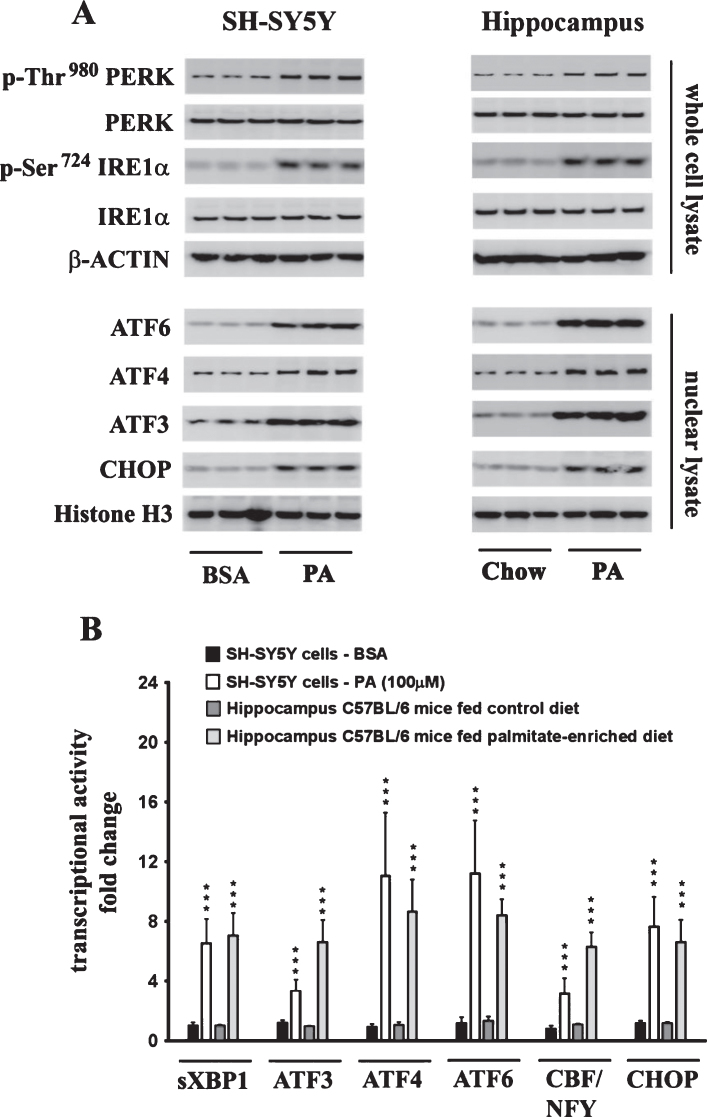Fig.2.
Exogenous palmitate treatment and a palmitate-enriched diet evoke ER stress in human neuroblastoma SH-SY5Y cells and the mouse hippocampus, respectively. A) Representative western blots show that palmitate treatment (100 μM for 24 h) of SH-SY5Y-APPSwe cells and feeding C57BL/6J wild-type mice a palmitate-enriched diet for three months, results in the activation of the three arms of ER stress signaling - IRE1α, PERK, and ATF6 pathway as assessed by an increase in the phosphorylation of IRE1α and PERK as well as the augmentation in the nuclear translocation of ATF3, ATF4, ATF6, and CHOP. B) Palmitate treatment (100 μM for 24 h) of SH-SY5Y-APPSwe cells and feeding C57BL/6J wild-type mice a palmitate-enriched diet for three months, also increases the transcriptional activities of the six transcription factors measured in the hippocampus. Data is expressed as Mean±S.D and includes determination made in three (n = 3) separate cell culture experiments and six (n = 6) different animals from each group. ***p < 0.001 versus BSA-treated control cells or C57BL/6J wild-type mice fed a control chow diet. PA, palmitic acid.

